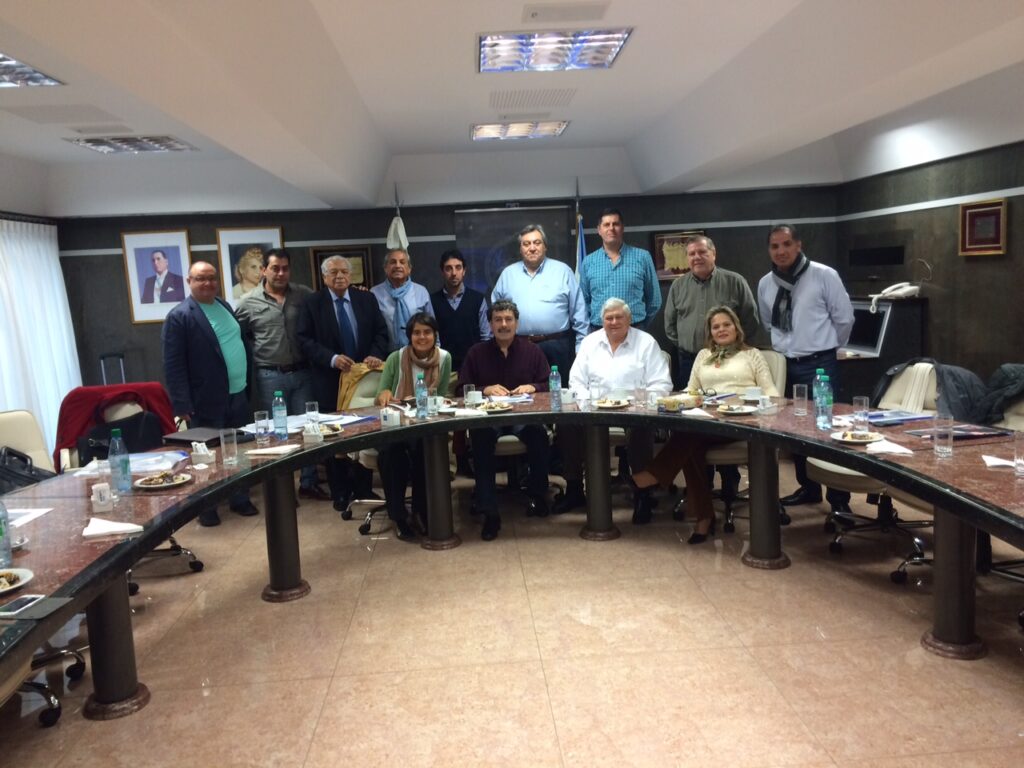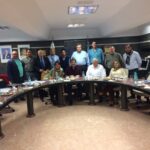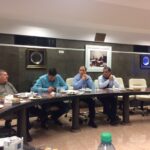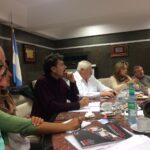Read this article in:
English
24 August, 2015Five textile industry unions affiliated to IndustriALL Global Union have agreed to join forces to campaign against precarious work in the sector, following a meeting in Buenos Aires on 11 August.
Clandestine sweatshops staffed mainly by foreign workers who have no basic labour rights are common in the textile sector in Argentina. Unions in the sector met IndustriALL representatives to discuss how to improve working conditions for these workers. They agreed to start a campaign against precarious work on the eve of the World Day for Decent Work on 7 October.
The meeting was attended by representatives of the Textile Workers’ Association (Asociación Obrera Textil, AOT), the National Clothing Industry Workers’ Federation (Federación Obrera Nacional de la Industria del Vestido y Afines, FONIVA), the Clothing Industry Workers’ Union (Sindicato Obrero de la Industria del Vestido y Afines, SOIVA) and the Clothing Cutters’ Union (Union Cortadores de la Indumentaria, UCI) all affiliated to IndustriALL, and the Union of Textile Industry Employees (Sindicato de Empleados Textiles de la Industria y Afines, SETIA). The meeting was also attended by IndustriALL Regional Secretary Jorge Almeida and the Precarious Work Project coordinators, Armelle Seby (world) and Elías Pintado (regional).
Precarious work in clandestine sweatshops
Each union representative described the problems they face and proposed possible solutions. One issue is the immigration of workers who come to work in the country in the clandestine textile sweatshops. About 2.7 million Bolivians have migrated to Argentina lured by promises of a decent job.
However, they are employed in precarious working conditions with no health insurance. They work long hours and are often injured at work because of the lack of safety measures. The unions therefore agreed to organize a high profile campaign to try and attract the attention of the government and textile companies.
“We have to make them realize that they have a social duty to provide decent working conditions. We are talking here about slave labour, child labour and clandestine sweatshops. There are thousands of sweatshops involved in sewing and cutting clothes with these working conditions in the Flores district. We are very keen to take strong action to influence legislation. It is essential that unions focus on this at every single company,” explained Heraldo Pablo Mage of the UCI.
Armelle Seby and Elías Pintado said that precarious work is one of IndustriALL’s five priorities. Unions are encouraged to add this issue to their agenda in order to stop precarious work becoming more widespread. IndustriALL recommends three methods of action: campaigns to promote better legislation; campaigns to promote union membership; and collective bargaining. The aim is to build sustainable joint strategies in all these three areas.
The meeting proposed action plans and further planning seminars and agreed on the importance of improving contact between IndustriALL-affiliated unions to facilitate information exchange, improve support for each other and build a joint agenda. Finally, they agreed to hold another meeting before 7 October to draw up an action plan for a campaign against precarious work.
Jorge Almeida assessed the importance of the meeting in these terms:
“Precarious work requires us to reorganize our work and improve the day-to-day operation of trade unions. We congratulate the textile workers’ unions in Argentina who agreed to send representatives to this meeting and discuss how to strengthen union work to promote decent jobs.”




